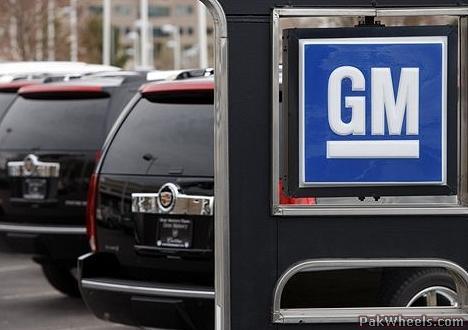BANKRUPTCY LOOMS FOR GM
Washington/Detroit - General Motors on Wednesday prepared to face the fallout from a failed debt exchange that sends the largest US carmaker closer to a bankruptcy filing expected by the end of the month.
GM bondholders had until midnight to trade $27bn in debt for a 10% ownership stake in the reorganized company that US officials have said could emerge from a quick trip through bankruptcy court.
As the deadline passed early on Wednesday there was no immediate word from GM on how much debt the offer had succeeded in retiring. The US Treasury also had no immediate comment.
GM's bond exchange offer had been dogged by criticism since it was launched a month ago that it was an unfairly low payout made at the direction of US officials more sympathetic to the competing claims of GM's unionised workers and retirees.
But the exchange had also been seen as GM's last remaining hope to cut debt outside the kind of government-financed bankruptcy that has been underway for its smaller rival Chrysler since the end of April.
GM planned to detail the results of the debt exchange offer on Wednesday morning, spokeswoman Renee Rashid-Merem said.
The automaker's board could also meet as soon as Wednesday to review options for the automaker that has been kept in operation since the start of the year with $19.4bn in emergency federal loans, representatives said.
The bondholder deal was running well short of the company's goal and had attracted only a low single-digit percentage of the $27bn targeted as of Tuesday afternoon.
That was nowhere near the 90% support GM had set as a target to stave off bankruptcy, two sources familiar with the discussions told Reuters.
Separately, people involved in the effort to restructure GM under federal supervision said the Obama administration believed that the plan overwhelmingly rejected by bondholders was fair.
But the autos task force also remained willing to talk with bondholders after the expiration of the debt exchange deadline, the sources said on condition that they not be named.
Blame the bondholders?
Analysts said GM's bondholders had tipped the company toward a near-certain bankruptcy that would rank as one of the largest and most complex reorganizations in US history.
"I think the exchange offer was really a transparent attempt to blame bondholders for the bankruptcy rather than to accept responsibility for years of mismanagement and failure to anticipate things that should have been understood," said Richard Tilton, a restructuring analyst at Covenant Review.
"I think the task force made that hurdle so high, they wanted them to go into bankruptcy, they see that as the solution," independent auto industry analyst Erich Merkle said on Tuesday.
"As long as they see that as the solution, there is not much that can be done," Merkle said.
GM is widely expected to file for bankruptcy by June 1, the deadline set by President Barack Obama for the company to demonstrate its viability or face bankruptcy.
"GM today stands at the very brink of bankruptcy," the United Auto Workers said in a document released on Tuesday that detailed terms for the sweeping concession agreement now before rank-and-file members for votes on Wednesday and Thursday.
Ratification, which is widely expected, is a priority of the Obama administration's autos task force, which wants GM to sew up big-ticket cost-cutting and other deals and demonstrate stakeholder unity ahead of any Chapter 11 filing.
Any major changes in the ownership structure of a new GM appeared unlikely as the government is ready to increase its planned stake - and its risk - from 50% to as much as 70% in order to further cut the company's debt, the Wall Street Journal said on Tuesday.
The US government has provided a combined $36.6bn to GM, bankrupt Chrysler and their financing units since December and has said it stands ready to finance a GM bankruptcy proceeding.
The Journal reported that the Treasury was prepared to sink another $50bn into GM through various financings, most of which would take the form of company equity.
The key for GM's negotiations with the UAW was how the two restructured payment terms on $20bn the carmaker still owes to a trust fund for retiree health care.
The union has agreed to take 17.5% of common stock in a restructured GM. The union would also be paid $6.5bn in preferred stock and would be granted a $2.5bn note.
The union would also have a warrant for another 2.5% of the stock in a new GM that would be majority held by the US government.

